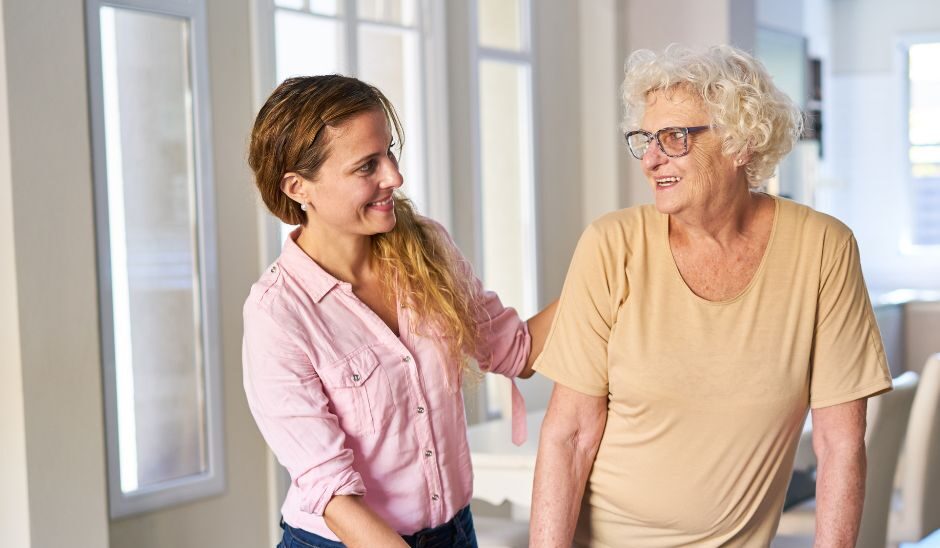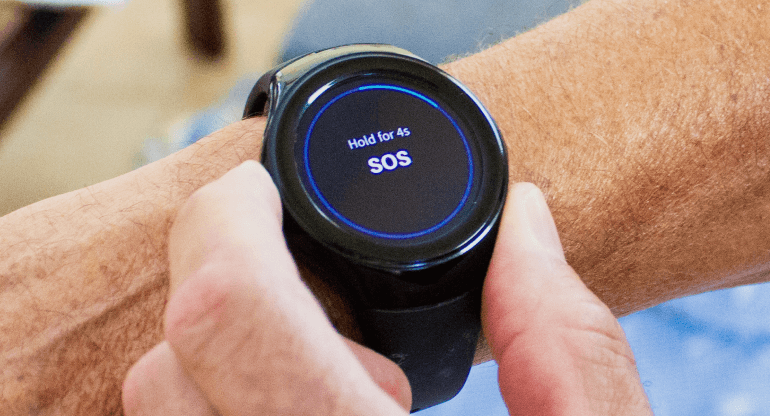When your senior loved one is ready to return home after a stay in the hospital or skilled nursing facility, you might feel a mix of relief that they are coming back to a familiar place and anxiety that they will be safe there. No matter if your loved one is returning from a planned surgery or an emergency stay, there are some things you can do to make the transition smooth and safe for everyone.
Here are some steps to consider when preparing for your loved one’s return home.
Work with a Discharge Planner
Hospitals and skilled nursing facilities will have a social worker or discharge planner. This is a professional who is there to point you toward resources and instructions that are personalized to your loved one’s diagnosis and abilities. Ideally, you should meet with a discharge planner a few days prior to a scheduled discharge and you should be able to contact them with questions as you begin to plan the return home.
Find Home Care Support
In many cases after a hospital or skilled nursing discharge, a physician will order home care services for at least a short amount of time. This prescribed skilled care might include a quick nurse check-in visit or it might include more intensive services like wound management, pain management, or even at-home physical or occupational therapy visits. This medical home care is typically covered by Medicare, and you’ll need to find a medical home care provider, as a non-medical home care provider will not be able to offer these skilled services.
Once you find a few medical home care providers, take a few moments to interview them over the phone. Make sure they have openings for the week your loved one is returning home and that they provide services to your loved one’s location. Inquire about how much services will cost, including if your loved one needs nonmedical companion services for safety that are not covered by Medicare.
Prepare the Home
Rally a few family members or friends to help you prepare your loved one’s home for their arrival. Your discharge planner may provide a checklist to help you prepare the home. If not, try to spend time cleaning up the main areas of the home, including the living room, kitchen and bedroom. Next, prepare a safe place for your loved one to sleep. This might mean you need to set up a temporary sleeping space downstairs if they are too weak or unsafe to go upstairs to their bedroom.
Add some nightlights to ensure your loved one can see in the middle of the night, and make sure a wheelchair or walker (if they will be using one) can fit through the halls and main pathways of the home.
Bring in DME
If your loved one will need any type of durable medical equipment (DME) during their return home, get it ready and installed before they arrive. You can find DME at your local pharmacy or you might be able to rent certain pieces from the senior services department of your loved one’s town. Your discharge planner might have a list of local resources for this.
Order Groceries or Meal Service
Your loved one might not be ready to prepare their own meals when they are recovering at home. You can set them up for success by starting a home-delivered meal service, such as Meals on Wheels, for them through your discharge planner or city’s senior service department. If you have friends and family members who are looking for ways to help, start a Meal Train or other system so they can sign up for days to bring meals for your loved one.
Have an Emergency Plan
Finally, before moving your loved one back home, make sure you have an emergency plan in place so they know what to do if they need help. A medical alert device is an ideal solution, as it will connect your loved one to trained operators who can assess the situation and dispatch emergency response. It can give you and your loved one peace of mind that help is always nearby as they recover and regain their strength at home.















